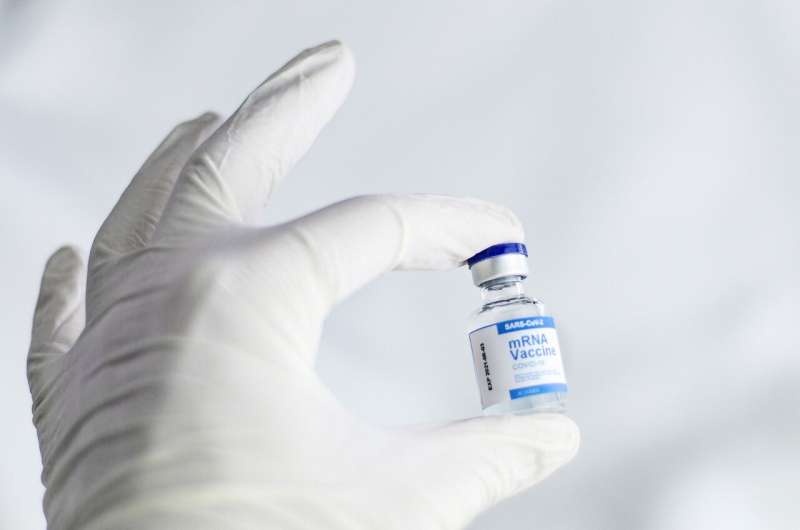

A study by researchers from Swansea University shows that conspiracy theories, a distrust in in government and COVID echo chambers are among the factors leading to vaccine delay.
This is a distinct form of vaccine hesitancy where people assume they might get vaccinated at some point but are putting it off until they have more information or until they need to, for example to be able to travel.
The study also finds that vaccine passports were one of the factors which might encourage some of those delaying the decision of whether or when to get vaccinated.
It has been published on MedRxiv, a site used by researchers to share new findings on timely issues before they have been peer-reviewed for publication in a journal.
The research revealed:
- Overall, positive sentiment toward vaccines was high. However, the study found that a substantial proportion (41%) of those taking part, including younger adults, were still unsure about vaccines and might be delaying their decision to get vaccinated. Vaccine delay could be costly for public health;
- Barriers to vaccine uptake included: a preference for “natural immunity”; concerns over possible side effects; a distrust in government; a perceived lack of information over efficacy and safety of vaccines; the circulation of conspiracy theories, particularly amongst Black and Asian Minority Ethnic communities; and the existence of so-called COVID echo chambers—where people with similar views around COVID vaccines tend not to discuss the issue(s) with those who have views different to their own;
- Vaccine passports were perceived by many to be likely if not inevitable. For some who those who were hesitant to get vaccinated, vaccine passports were perceived to be a reason why they would “need to” get vaccinated in the future. However, vaccine passports were controversial, with some seeing them as a “necessary evil” and others seeing them as “a human rights problem”; and,
- Earlier concerns over people being complacent or rule-breaking after having a vaccine may have been unwarranted. Among those who had already had one or two doses of the vaccine, few reported a change in health behaviors such as mask wearing and social distancing.
The Public views of the COVID-19 pandemic study is being led by Dr. Simon Williams and Dr. Kimberly Dienes of Swansea University, in collaboration with Professor Christopher Armitage of the University of Manchester and Dr. Tova Tampe, an independent consultant at the World Health Organization (WHO).
The researchers have been conducting online focus groups and surveys with people from across the UK throughout the COVID-19 pandemic to explore their views and experiences.
Dr. Williams said: “The speed and extent of vaccine uptake in the UK has been remarkable. However, although we found that many people, including younger adults, feel positive towards getting a vaccine, a significant proportion are still unsure and feel like they need more time to decide.
“And with concern over the so-called Indian variant, it’s not just a question of how many people will ultimately end up getting vaccinated, but also how quickly or not they will decide.”
Dr. Dienes added: “By their own admission, some were delaying the decision to get a vaccine until it was a ‘necessity.” For these, vaccine passports were seen as something that would inevitably influence their decision. Some called vaccine passports a ‘necessary evil’ while others saw them as an indication that an activity might be safe.
“Policymakers should recognize people’s concerns and desire to delay as valid, and work on ways to understand delay and reduce it through reassurance and communication.”
Dr. Williams said: “There has been a lot of focus on the anti-vax movement, although this is likely a very small number of the total population. More important for public health is the larger number of people who are delaying because they want to wait and see what happens with vaccines.
Source: Read Full Article